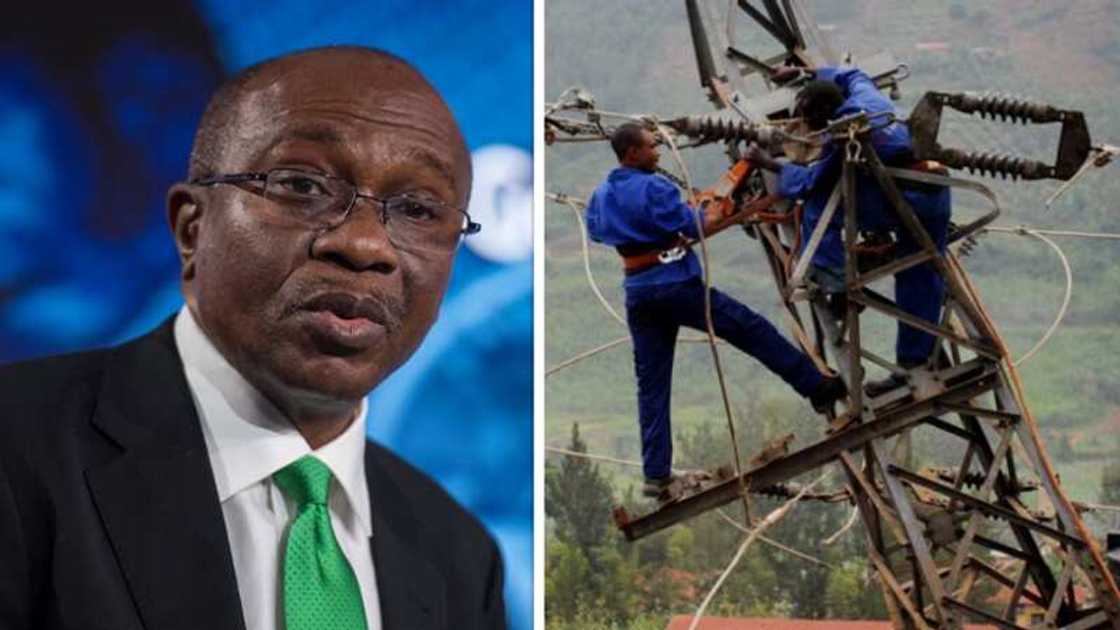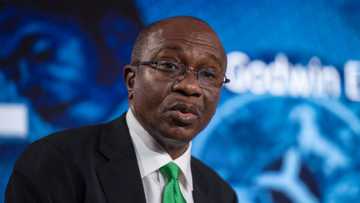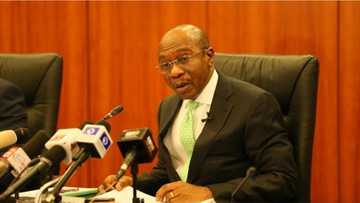Electricity supply to improve in Nigeria as CBN releases N3.01bn to Distribution Companies (DisCos)
- The CBN has confirmed the latest release of N3.01 billion to electricity distribution companies in Nigeria
- The CBN governor said the gesture was aimed at improving the liquidity status of the DisCos and aiding their recovery of legacy debt
- The amount is the latest release of a total of N213 billion Nigerian Electricity Market Stabilisation Facility
PAY ATTENTION: Click “See First” under the “Following” tab to see Legit.ng News on your Facebook News Feed!
The Central Bank of Nigeria has disclosed the release of N3.01 billion to electricity distribution companies (DisCos). This amount is the latest release of a total of N213 billion Nigerian Electricity Market Stabilisation Facility.
The recent release also rounds up to a total of N18.26 billion so far disbursed to the first batch of beneficiaries of the programme.

Source: UGC
According to the CBN governor, Godwin Emefiele, the intervention was made to improve the liquidity status of DisCos and aid their recovery of legacy debt which has been a major hindrance to their operations.
The grant will be issued under the Nigerian Electricity Market Stabilisation Facility (NEMSF-2) for capital and operational expenditure of DisCos.
PAY ATTENTION: Сheck out news that is picked exactly for YOU ➡️ find the “Recommended for you” block on the home page and enjoy!
The CBN boss stated the apex bank was collaborating with the entire banking sector to provide the facility to address recent shortfalls in power sector revenues caused by needed adjustments in the electricity tariff and legacy gas debts.
He added that the grant was a way to encourage the electricity revolution in Nigeria and motivate DisCos to deliver significant improvement in power supply across Nigeria.
Emefiele urged the beneficiaries to ensure the proper investment of the funds in the upgrades of their lines of energy generation and distribution, and better metering of customers.
A long way to 24-hour supply across Nigeria

Read also
CBN wades into N120 billion USSD debt dispute between telcos and banks as NCC gives nod to disconnection
For decades, Nigeria has initiated several policies to ensure the output of the national grid increases in order to improve power supply in Nigeria. Unfortunately, most of these initiated had hardly scratched the surface of the real problems in the sector.
Jude Ekpeyong, a power sector analyst and former staff of Eko Electricity told Legit.ng that it would take more than the loans and grants to DisCos to ensure Nigerians enjoy improved power supply. He said:
The CBN giving grants to DisCos to step up their operations is indeed a commendable move, but it would take more than that to ensure improved electricity supply. There are a lot of bottlenecks in the power sector that makes it difficult for the generating companies, distribution companies and transmission companies to function properly.
The government needs to ease some of the bureaucratic processes in the power sector. Well thought-out and workable policies must be introduced and implemented. Lucky for us, the president has just signed a bill which will allow states to generate their own electricity. This is quite commendable.
Nigerians Lament Poor Electricity Supply
Meanwhile Legit.ng earlier reported that even though power generation has experienced a slight improvement for the most part of 2022, it is still lower than the 5,000MW target by the Federal Government.
The report indicated that lead generators which contributed to the surge in generation across the country include Egbin Power, Delta Power, Azura-Edo IPP, Iroro Hydro, Kainji Hydro, Odukpani NIPP and Jebba Hydro.
In many parts of the country, the power supply is still widely epileptic as they get to experience power for not more than 3-4 hours a day. In some places, power can be gone for two straight days.
Tunde Akinyele told Legit.ng that the electricity issue in his locality has become unbearable as he never gets to have power whenever he returns from work in the evening.
Another electricity consumer in the Ipaja area, John Ojo, who spoke with Legit.ng said that he has come to accept the unfortunate situation by relying more on his inverter.
Source: Legit.ng




